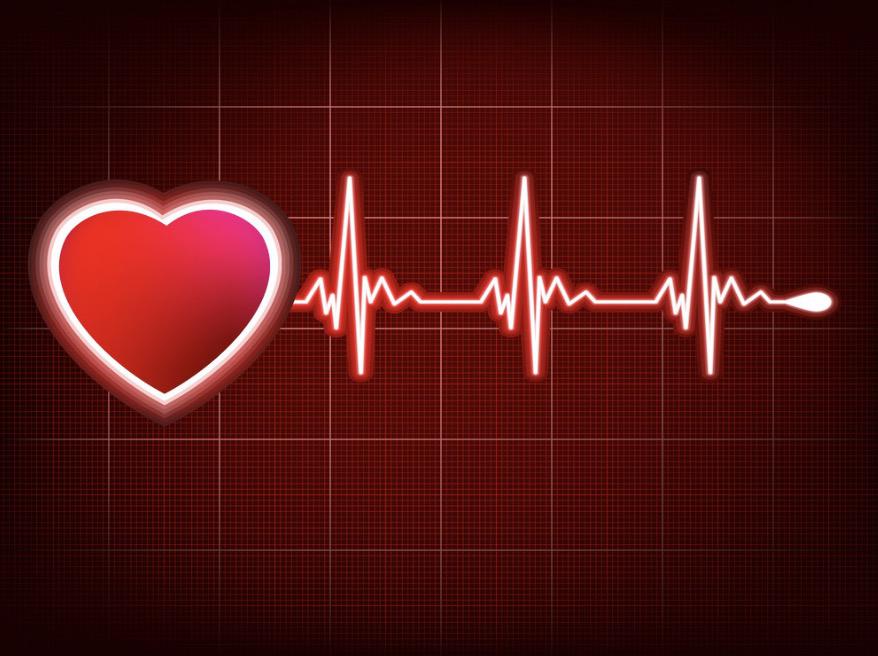Enjoy FREE Shipping on Orders Over $99
DON’T HAVE A COUPON CODE?
Use EZ10OFF At Checkout to Save 10% On Your Entire Order Today!
Explained: The Link Between Magnesium and Heart Rhythm

It's common knowledge that for stronger bones, you need calcium and for stronger muscles, you need a good amount of potassium. What we obviously did not expect to know is that we need magnesium to maintain a healthy heart.
There are more than 300 biochemical reactions in the human body and magnesium is crucial to keep these reactions working.
Magnesium keeps your muscles and nerves working properly and is also responsible in making your bones strong. And mind you, it also keeps your blood sugar under control.
And know this: In order for you to maintain a steady heartbeat and a healthy blood pressure, you need magnesium. Yes, magnesium is crucial in maintaining a healthy heart.
Magnesium Keeps Your Heartbeat Steady

Magnesium, known to help in effectively transporting calcium and potassium into the cells, keeps your heart rhythm steady and healthy. These electrolytes are crucial for nerve impulse and muscular contractions which is responsible for normal heartbeat.
Recent studies show that when you are magnesium deficient, it is likely that you will suffer from arrythmia or commonly known as irregular heart rhythm. A very common heart rhythm disorder known as atrial fibrillation (afib) has been observed from people with low levels of magnesium in their blood in a Framingham heart study that was published in 2013. This disorder typically happens when the heart’s electrical signals malfunction which incidentally makes the heart’s upper chambers tremble.
Beware: Magnesium Deficiency May Weaken Your Heart
Although it is true that further studies must be done in order to arrive at a conclusion that magnesium has direct link to heart health benefits, a number of studies have proven that magnesium supplementation can indeed lower blood pressure (shown in 2012 European Journal of Clinical Nutrition) and low levels of magnesium in the body can lead to hypertension (2014 Journal of Clinical Hypertension). One research has indicated that magnesium deficiency can increase your risk of heart disease such as heart attack (2015 PLoS One Report).
So How Much Magnesium Do You Need?
An average adult has approximately 25 grams of magnesium in the body. Most of it are found in the bones. Depending on your age and sex, the recommended dietary allowance (RDA) for magnesium, varies. 400 milligrams of Magnesium is recommended for men ages 18-30 and 310 milligrams for women. For men ages 31 and older, 420 milligrams of Magnesium intake is recommended and 320 milligrams for women. It takes a blood test to know how much magnesium you have in your body. The normal adult value for magnesium is 1.5 to 2.5 mEq/L.
Start Getting Magnesium from Your Diet

It's always wise to start getting the nutrients we need from the food we eat. Go for wheat bread. Whole wheat flour contains 160 milligrams of magnesium per cup. Dark leafy greens such as spinach contains 157 milligrams of magnesium per cup. Quinoa is also rich in magnesium with 118 milligrams of magnesium per cup. Nuts such as almonds, cashews and peanuts are also rich in magnesium. Common foods like dark chocolate, black beans, edamame, avocado, tofu and yogurt have also been shown to contain high levels of magnesium.
Did You Know that Your Body Controls Magnesium Levels?
Almost 60 percent of magnesium is found in your bones, 1 percent in the blood and the rest is found inside the cells which makes it difficult for doctors to diagnose magnesium deficiency. For normal adults, magnesium deficiency is rare because the kidneys naturally manage and control the amount of magnesium in the body.
When the kidneys sense that your body has low levels of magnesium, less magnesium will be discharged in the urine.
Are You Safe Against Magnesium Deficiency?
As we grow older our body’s ability to regulate nutrients incidentally weakens and immoderate loss of magnesium leads to a deficiency. Health conditions such as type 2 diabetes, gastrointestinal diseases and alcoholism also deplete the magnesium levels in the body. Medications such as diuretics and proton pump inhibitors will also cause your body to excessively excrete magnesium. Older people are most likely to be magnesium deficient because they are normally the ones taking these medications.
Do You Need Magnesium Supplementation?

Given that magnesium is one of the many electrolytes in your body that is crucial in maintaining a healthy heart and nervous system function, magnesium supplementation is generally recommended. Most of all, magnesium is highly recommended for people who are diagnosed with magnesium deficiency to avoid the adverse effects it may cause to the body such as seizure, irregular heartbeat and muscle spasms.
Eating too much foods high in magnesium is not considered to be a health hazard because of how the kidneys regulate magnesium. What should be noted though is this – enormously high doses of magnesium over 5,000 milligrams a day is extremely dangerous.